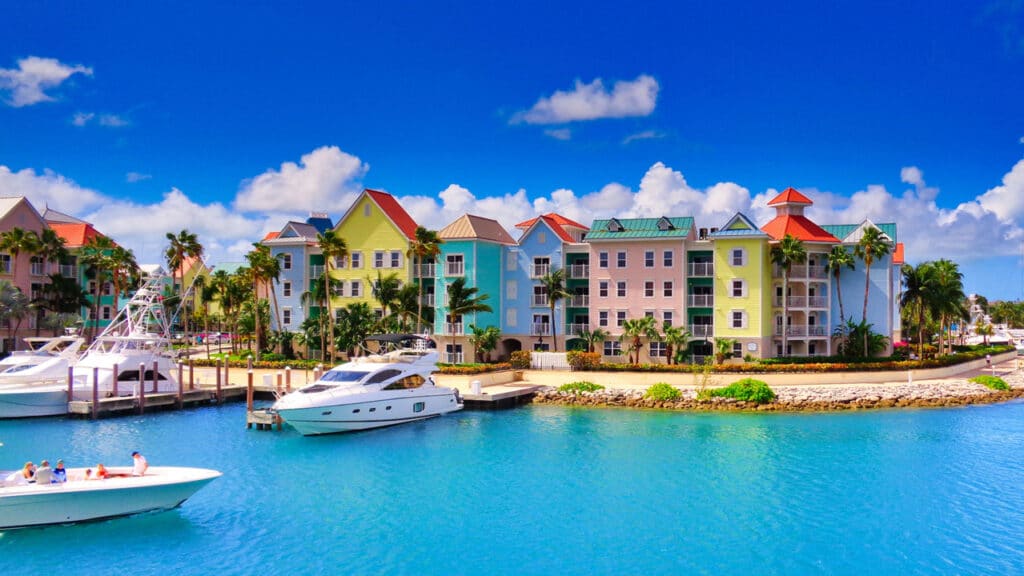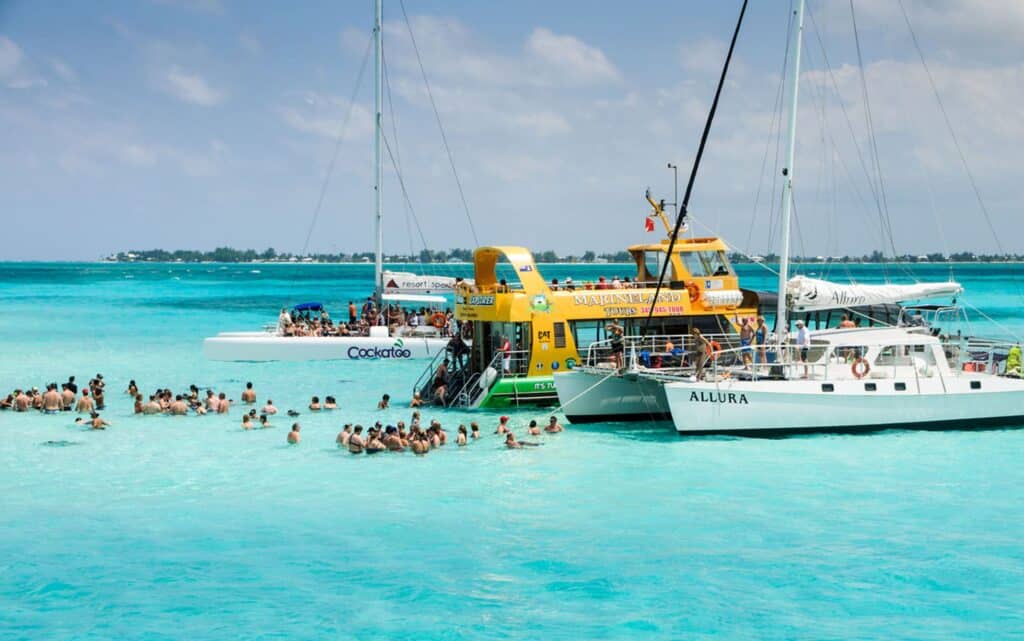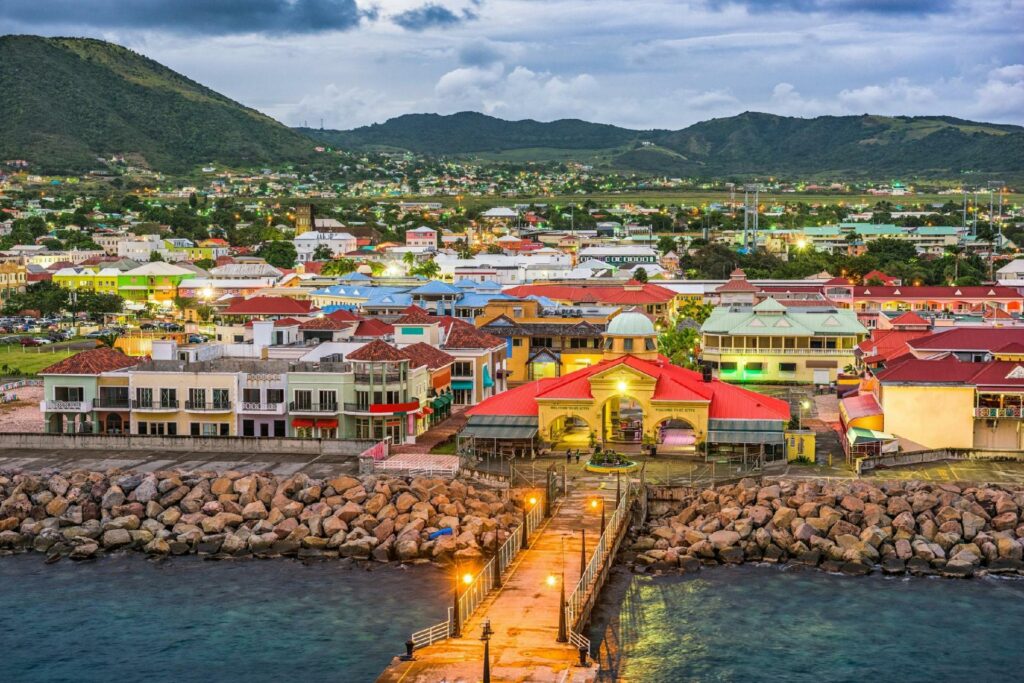If you are looking to invest as an expat or high-net-worth individual, which is what I specialize in, you can email me (advice@adamfayed.com) or use WhatsApp (+44-7393-450-837).
It should be noted that there are no “traditional” tax heavens left, if a heaven means to illegal not pay taxes.
What is possible to to offshore yourself, and in some cases, pay fewer taxes.
Many of the Caribbean tax havens fall under the category of “pure tax havens,” meaning they levy zero taxes. In order to lessen their reliance on other countries and sustain their own economy, a number of Caribbean countries were pushed to turn into tax havens.
The Caribbean is well known for its stunning beaches and warm weather. However, it’s not the only reason to consider relocating to the Caribbean. It is close to the US. There are several citizenship and residence options available. It’s surprising that more individuals aren’t deciding to relocate here.
What is a Tax Haven?
In general, tax havens are places where people and foreign companies that want to deposit money in their financial institutions may do so with no residence requirements and very low taxes.
Corporations and individuals can hide part of their revenue from tax authorities in foreign countries because to a combination of loose regulations and secrecy rules.
In a politically and economically secure climate, a tax haven is a nation that gives foreign firms and individuals little to no tax responsibility for their bank accounts. They provide tax benefits for businesses and the extremely rich, and it is clear that they might be abused in nefarious tax avoidance schemes.
Tax havens can be used lawfully by businesses and rich people to store money generated overseas while avoiding paying higher taxes in the US and other countries.
Tax havens may also be utilized unlawfully to conceal money from domestic tax authorities. This can be accomplished by the tax haven cooperating poorly with foreign tax officials. Recent years have seen an increase in the political pressure on tax havens to assist with investigations into international tax evasion.
What is an Offshore Tax Haven?
For an American, “offshore” refers to any location that is not under the control of the United States.
Offshore tax havens profit from the investment that their home nations’ economy get. Individuals and companies with accounts at banks and other financial institutions contribute money.
The tax burden on income in foreign nations that provide tax loopholes, credits, or other special tax considerations is minimal or nonexistent, which benefits both individuals and companies.
Tax haven countries often have no or low taxes, little reporting requirements, no restrictions for local presence, no transparency standards, and marketing of tax haven products.
10 Caribbean Tax Havens
Do you hold a job that is not location-specific? Do you want to see something different? Here is a list of 10 Caribbean tax havens where you can expect a kind welcome and no income taxes.
1. Anguilla
Anguilla is one of just a handful of British Overseas Territories that serves as an offshore tax haven. Offshore firms that produce money outside of their jurisdiction pay no tax. Anguilla does not levy income taxes, estate taxes, or capital gains taxes on people or companies, making it a tax haven.
The Offshore Banking Act of 2005 was intended to protect the privacy of offshore bank accounts and businesses, but some of this privacy has been compromised by the various Tax Information Exchange Agreements that Anguilla has signed with a variety of countries, including the United States and Canada.
This is despite the fact that Anguilla has no exchange controls regarding the transfer of money or assets.
With Anguilla’s two Residence-by-Investment schemes, there are some potential workarounds possible, although the advantages of this actually only apply to individuals who are at least somewhat rich.
Residency by Investment requires either a $750,000 investment in island real estate that is kept up for at least five years or a one-time gift of $150,000 per application to Anguilla’s Capital Development Fund, which funds public sector initiatives.
As an alternative, you can meet the requirements for the High Value Resident Program by doing things like paying $75,000 in yearly income taxes to the Anguilla Treasury and having a house there that is worth more than $400,000. This isn’t the finest offer in terms of tax residency.
2. The Bahamas
In the 1990s, after enacting legislation that permitted the creation of offshore businesses and IBCs, the Bahamas gained notoriety as a tax haven.
It continues to be one of the top Caribbean tax havens for citizens of the US and other European nations. The Bahamas offers offshore banking, offshore company registration, ship registration, and offshore trust administration.
The Bahamas was the first Caribbean country to enact stringent banking secrecy regulations. Only a particular order from the Bahamian Supreme Court may release information on those who have offshore bank accounts
There is no taxation of any kind on money received outside of the country, whether it comes from offshore businesses or from individuals with offshore bank accounts.

3. The British Virgin Islands
The British Virgin Islands (BVI) do not tax offshore accounts, but they do have tax information exchange agreements (TIEAs) with 19 other countries, including the United States (but not Canada), despite having laws in place to control and protect the privacy of banking, corporate, trust, mutual fund, foundation, and insurance operations. There are no current intentions to negotiate more tax agreements.
Offshore companies are not subject to taxes, and international corporations are not subject to taxes on profits or capital gains made outside of the BVI. Additionally, there are no limits on the free flow of capital or exchange regulations. The BVI is generally a favorable environment for conducting business.
4. The Cayman Islands
One of the top five offshore financial hubs in the world, the Cayman Islands offers services including offshore banking, offshore trusts, and offshore company creation.
Offshore companies do not pay taxes on profits made overseas, and Cayman international business companies (IBCs) are not subject to taxes either.
The Cayman Islands is a true tax haven because there is no gift tax, capital gains tax, estate tax, corporate tax, or income tax there.
To preserve banking privacy, the Cayman Islands have exceptionally rigorous banking rules.
No Cayman Islands government agency requires offshore firms to file financial reports. The Cayman Islands’ incorporation procedure is incredibly easy and straightforward.
In the Cayman Islands, there are no exchange regulations that limit money transactions in any way. Stamp duty on asset transfers is not necessary for offshore enterprises.

5. Panama
The Panama Papers incident partially damaged Panama’s reputation as a tax haven, but it still offers opportunities for people looking to lower their tax obligations.
Offshore Panamanian companies are permitted to operate tax-free both inside and outside of Panamanian territory.
There are no nationality limits on who may register a corporation in Panama, and neither the offshore corporations nor their owners are subject to personal, corporate, or local taxes.
An investment-based residence visa, a retirement visa, or a visa for friendly nations are the three ways to get residency in Panama. Panama’s permanent residence process may be sped up for rich investors in a month or less. You can seek for citizenship by naturalization after five years of continuous residency in Panama.
The benefit of having Panamanian citizenship is that it entitles the holder to visa-free travel or visa on arrival in 121 different nations, including the majority of those in Europe, Asia, and Latin America.
When you become a citizen of Panama, your spouse, kids, grandkids, and future generations will also be able to apply for citizenship.
Although Panama has rigorous financial privacy laws, including those with the US and Canada, they have naturally been partly undermined by TIEAs.
The Foreign Earned Income Exclusion is available to Americans who live and work in Panama, but if your business’s net earnings are greater than $300,000, you could be better off for the time being applying for tax residence in Puerto Rico.
6. Saint Kitts and Nevis
St. Kitts and Nevis Federation is made up of St. Kitts and Nevis. Along with top-notch offshore banking and insurance services, Nevis provides tax-friendly offshore limited liability corporations (LLCs), trusts, and foundation establishments.
Nevis offers financial privacy by keeping the identities of offshore company owners and directors a secret. Nevis only needs one shareholder and one director, who might both be the same individual. Any income produced outside of Nevis, including dividends and interest, is not subject to taxation when it is received by a Nevis-exempt trust. Stamp duty on transactions is exempt for Nevis trusts.
Income earned outside of Nevis is not subject to any local taxes. Withholding taxes, capital gains taxes, estate taxes, corporation taxes, and local taxes are not levied against offshore businesses or their owners on revenue earned outside of Nevis.
Nevis has stubbornly refused to join any tax agreements with other nations, and there are no exchange controls in place there.

7. Costa Rica
Costa Rica is a fairly tax-friendly country, offering a number of tax perks that have drawn big businesses to the country even if it isn’t a true tax haven. For instance, as a business incentive, Costa Rica is exempting numerous firms from paying any taxes for eight years.
Following this, corporate entities that must pay taxes are subject to exceptionally low rates of taxation and are not required to pay taxes on income from interest, capital gains, or dividends.
Additionally, Costa Rican-incorporated companies are exempt from paying local taxes if they operate their businesses elsewhere. This allows them to operate both domestically and abroad.
Since there are no exchange restrictions, it is simple to move money and other financial assets in and out of the nation and, once an account is opened, it is not necessary to identify the source of the funds. Costa Rica also has fewer TIEAs than many Caribbean tax havens and robust privacy rules that safeguard offshore interests.
Unfortunately, they negotiated a tax information exchange agreements with the US in late 2018, and they have a TIEA with Canada that dates back to 2011.
Everything from a retirement residence to an investment residency to a permanent residency may be obtained legally in Costa Rica with reasonable ease (after three years in another status). If you are from another country in Central America or are of Spanish origin, you can become a citizen after 5 years of residency; for people of other nationalities, it takes 7 years.
8. Dominica
The Commonwealth of Dominica, which is sometimes mistaken for the Dominican Republic, has introduced laws that make it easier to establish offshore firms, trusts, and foundations and offers offshore banking services that are both tax-efficient and privacy-protected.
Dominica is a true tax haven since it levies no corporation taxes, capital gains taxes, or income taxes on money earned overseas. Additionally, there are no estate taxes, including gift or inheritance taxes, nor are there any withholding taxes.
Offshore corporations and trusts are exempt from stamp duty on asset transactions. In Dominica, individuals of any nationality may set up offshore corporations. Identities of owners and directors of offshore firms formed in Dominica are protected by the country’s privacy regulations.
Interest collected on offshore bank accounts is not taxed, and information on account holders is not shared with foreign tax authorities. Dominica is a safe offshore tax haven because of its strong regulations governing asset protection and financial secrecy.

9. Belize
It is not difficult to establish offshore banks, offshore businesses, trusts, or foundations in Belize. Additionally, revenue made outside of Belize is not taxed for offshore companies that are formed there.
In addition, interest income and capital gains are not taxed in offshore trusts and bank accounts. Furthermore, banking laws ensure complete secrecy, with only court orders allowing the release of account holders’ identities in connection with criminal investigations.
Despite its strong commitment to safeguarding financial privacy, Belize’s government has signed tax information exchange agreements with fourteen foreign nations that were designed by the OECD. The fact that the United States and Canada do not (yet) have TIEAs with Belize, however, is excellent news for Americans and Canadians.
Although Belize does not have a citizenship by investment scheme, the immigration restrictions are generally flexible and it is not difficult to become a resident.
Although the country’s department of labor must first approve a work visa application, the fastest way to get one is to enter on a tourist visa. Apply to have it renewed every 30 days until you have had it for 50 weeks (you are not required to be in Belize during this time), and then apply for permanent residency. The entire procedure, including evaluation and acceptance, might take up to a year.
If you’re over 45, another and even simpler option is to apply for a retired residency visa. If your dependents are under the age of 23, they may also be included on this visa. Simply proving that the retiree makes at least $2,000 a month—more than enough to live comfortably in the country—is all that is required.
If they continue to be permanent residents for five years, they can seek to become citizens of Belize, receive a passport, and then continue to live anywhere in the world while maintaining their citizenship status.
10. Barbados
Barbados has a robust offshore financial industry that includes offshore banking, offshore corporate creation, and exempt insurance.
Although not a true tax haven, Barbados offers exceptionally cheap taxes to offshore firms that incorporate there. Taxes paid by offshore corporations on their earnings typically range from 0 to 5.5 percent, with the tax rate falling as the amount of profits earnedrises.
Offshore businesses can bring in essential machinery or office supplies without incurring any import taxes.
There are no capital gains taxes or withholding taxes. Barbados, in contrast to the majority of Caribbean tax havens, does have double taxation agreements with a number of other nations, notably Canada and the United States.

Pained by financial indecision? Want to invest with Adam?

Adam is an internationally recognised author on financial matters with over 830million answer views on Quora, a widely sold book on Amazon, and a contributor on Forbes.



